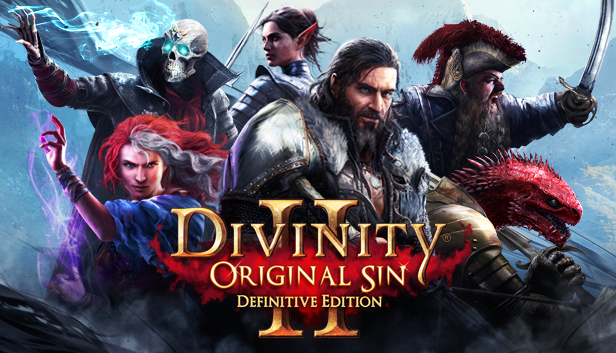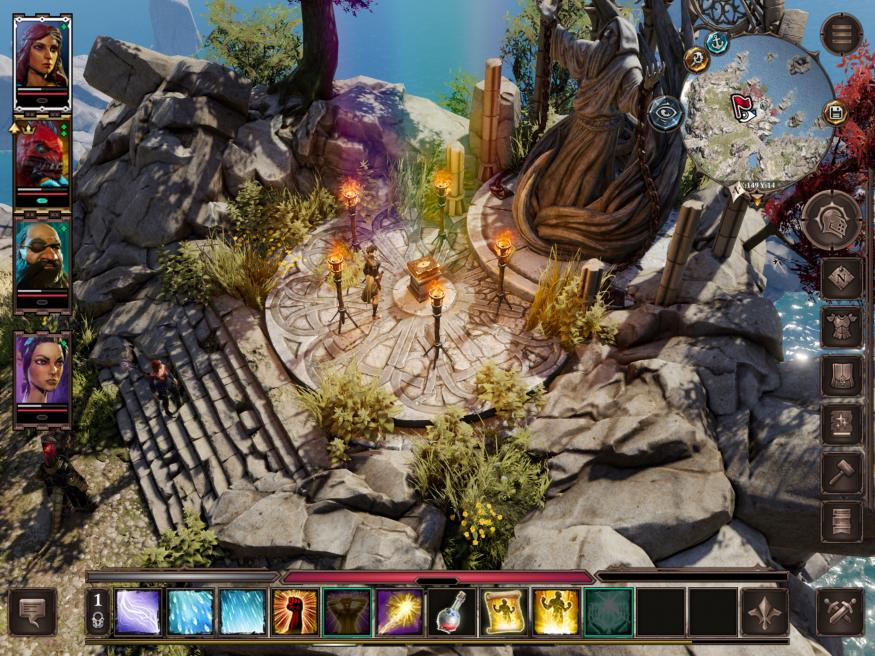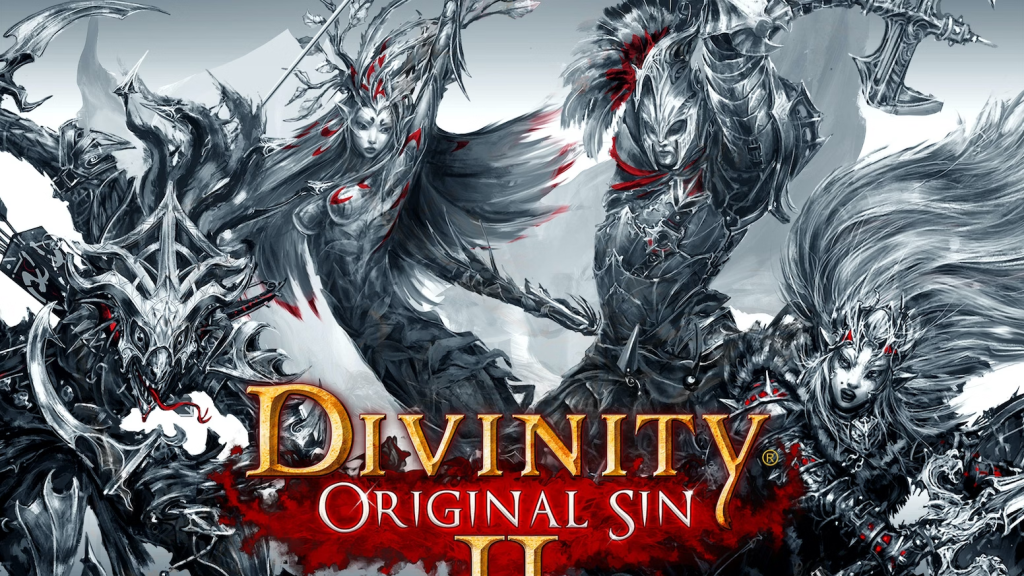
Classic RPGs have largely faded into obscurity. However, it must be noted that in recent years, many creators have attempted to profit from these nostalgic games. Recent remasters of games from the previous century, such as Pillars of Eternity or Torment: Tides of Numenera, simply corroborate these remarks. Another market player, instead of toying with nostalgia, attempts to develop this rather rusty mechanism in a completely other approach.
The plot takes precedence here, as it does in every decent RPG. The narrative begins when the order of magisters transports us and other members of our squad to Fort Joy. In actuality, it is an island that houses prisoners. Drawers are those who can draw on the Source, a vast, mystical force that may cause disaster. This is why magisters place collars on them to prevent them from using their full ability. Soon later, it is revealed that the main protagonists are also “Anointed Ones,” with the destiny of restoring equilibrium to the planet and eventually becoming God. Interestingly, only one individual on the team may obtain divine abilities, so if you’re playing with pals, you’ll have to determine who gets this honour together. I wish I could share more, but it would result in thicker spoilers. I’ll just say that the plot is full of twists and turns, and we frequently don’t know who is ultimately good and who is bad, who is manipulating us and who is speaking the truth, with whom we should form an alliance and with whom we should put a log under our feet. At first look, everything appears to be apparent, yet as time passes, we discover more about the universe and the characters’ intentions.I occasionally paused the game to consider what to do next, who to trust and who to kill. There were times when I did not complete a task since its conclusion would result in the death of one of the characters, and I cared about each of them. In Divinity Original Sin II, the world is filled with a unique grey that pushes us to make morally tough decisions.
Of course, we don’t have to associate with anybody; in this game, we have the ability to murder virtually every NPC, and there are a lot of them! We can converse with ghosts, devils, gods, and even animals, in addition to traditional human characters. The range of dialogue alternatives is vast; in virtually every chat, I found an answer that described my stance in a particular situation. I’ve stumbled across several excellent side missions in the game; each one offers an engaging tale, doesn’t identify the target areas on the map, and forces us to think. We are involved from start to finish, and the ultimate outcome is not always colourful and predictable. Nobody assigns us as errand boys, we don’t follow the thread depicted on the map, and many of our interactions with other characters might influence the fate of another.

Although the game may be played with just one character, the developer’s colleagues deserve special notice. Each of the characters is colourful, has its own personality, and occasionally adds their two cents to a particular circumstance. Each of them has its own history and unique characteristics that might help you solve some of the challenges. For example, one of the individuals will be able to read ancient literature, another will have contacts with local bandits, and still another will speak in the Lizards’ extinct language. Of course, it also works the other way around; certain characters will be assaulted right away by former adversaries. There are several examples of this. The most significant benefit of having one of these characters on the squad is that they contribute new storylines to the narrative that are just as engaging as the primary plot. These characters’ stories are similarly full with twists and secret intrigues. These heroes are the key motivation to replay the game.
Divinity Original Sin II is a role-playing game with a plethora of attributes, abilities, and skills. It’s difficult to get the swing of things at first, but everything is really well documented; just spend a time reading the explanations of the talents before you start playing. The whole thing turns out to be really approachable and simple to grasp. You also don’t have to be concerned about incorrectly disseminated statistics because the designers enable you to freely edit them in our database. The only issue may be the spells we learn from special books, which are conveniently available from practically any store; thankfully gold can be used to solve this problem.
Statistics are quite useful in travelling and discovering the globe. With Divinity Original Sin II, I frequently felt like I was playing a paper RPG version of Warhammer or Dungeons & Dragons. Mostly because there is no turning back now. There will be repercussions if we fail the persuasion test, reply incorrectly, or just do nothing. A specific character will never speak to us, attack us, or just give us an assignment. There are several ways to fail here, and the repercussions can be severe. That’s why I always recommend saving the game. The game provides us with a plethora of options, and it is up to us to decide which ones to apply. We have five races to choose from: human, dwarf, elf, lizard, and undead. Each of them has a unique particular power, such as the undead’s capacity to “pretend” to be dead, lizards’ ability to breathe fire, and elves’ ability to consume the bodies of the fallen in order to learn more about their past. Some NPCs treat each race differently, and distinct discussion possibilities occasionally arise in chat trees. Race also has an impact on which of the seven gods speaks to us.
Now, let’s get to the feature that differentiates Divinity Original Sin II the most from the competitors and further enriches the experience directly from paper RPGs. This is a discussion about the fighting system. This isn’t your typical game with “real-time” fighting or pressing pause. As a result, conflicts frequently begin prior to the attacking phase. First, we decide whether to sneak up on the enemy from behind, where to position our squad, whether to obstruct the door to make it more difficult for a prospective relief to enter, or whether to place a swarm of exploding barrels next to the adversary before I assault him. Ideas can be duplicated and occasionally turn out to be crucial components of the conflict. Each fighting action requires a set number of action points, literally each! Searching adversaries’ bodies, making potions, removing explosive barrels from the inventory, employing teleportation equipment, and so forth. Unlike jRPG games, the action does not restrict our mobility during turn-based battle.
The elemental system is a crucial aspect of warfare. We have several fundamental natural forces at our disposal: water, ice, fire, electricity, poison, and oil. Elements may and should be combined to form combinations. Ignoring this point will result in our downfall. This is best exemplified by the example of water: we can electrify it to shock opponents, we can freeze it to make adversaries slip on ice, and when we treat this liquid with fire, we generate water vapour that reduces our opponents’ visibility. If you don’t have any water-related items or spells, you can use blood spilled in the arena to execute the same combos. This generates other strategies, which, when paired with advanced skirmish preparation, expands our variety of options even more. Combat strategy is critical, especially when opponent levels do not scale to yours. I generally perished when I faced a tougher opponent. With each bout, though, I was able to discover his strengths and weaknesses. I knew who to remove from the rest of the party, who to kill first, who to attack with magic and who with melee weapons, how to build up the party, who to start the discussion with, what potions to drink, and so on… It gave me a lot of pleasure. The game has ten different skill types. Each of them has their own spell books, and we may build blended spells that combine two sorts of talents. There is no use in confining oneself to one school of talents in this situation; you must mix to produce the most potent fusions.

Divinity Original Sin II is a massive game with hundreds of hours of content that cannot be discussed in detail. As a result, in this paragraph, I will explain items that are still worth discussing. First and foremost, the music is fantastic, as is the rest of the game, being both evocative and well created. Borislav Slavov, renowned for titles like Knights of Honor, Two Worlds II, and Crysis 2 and 3, is in charge of everything. When I took a break from playing, I decided to listen to the Divinity Original Sin II and other soundtracks made by him for other games and such. The game also has an intriguing crafting system. We will come across a great number of books while travelling throughout the world. It’s worth at least opening them because they may include useful recipes that will be added to our collection automatically. It is especially important towards the start of the game, when everything appears to be extremely expensive. You can make practically anything here because the developers have considered several factors. One of the more surprising ideas was that you may attach nails to your shoes to keep you from falling over on the ice.
In addition to the standard story campaign, the game includes an arena mode. We may battle on little maps with our pals here. To make it more equitable, each participant selects characters developed by the authors. We play on a single console or via a network. This sort of appeal is a good change of pace and a fantastic addition to the overall fighting system. Unfortunately, this mode has two drawbacks: it is rarely used, and there may be more characters.
Divinity Original Sin II is an excellent, well-thought-out game that provides a great deal of joy and fun. It’s one of those games that stays with me and holds a special place in my heart. I want to return to this lovely place as soon as possible to soak up all of its goodness, and there is enough of it. I spent almost 100 hours with her and I have no regrets. This title rekindled my passion for role-playing games. This is an absolute must-have for fans of such a genre, and because of that I give this game two thumbs up!
